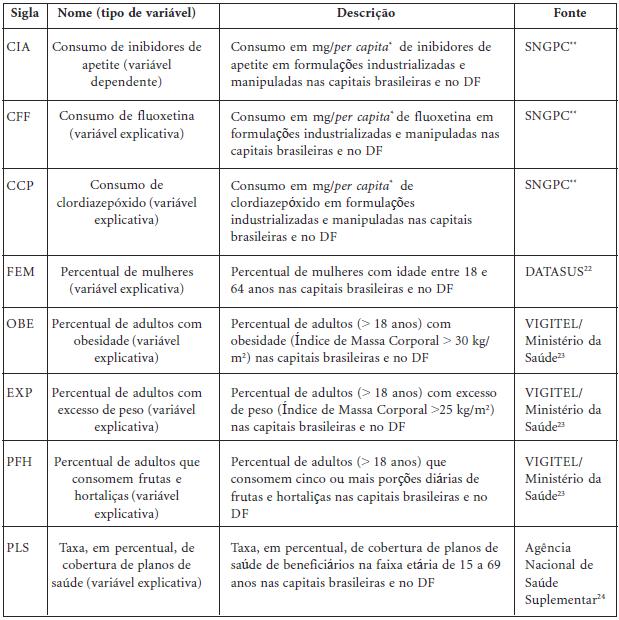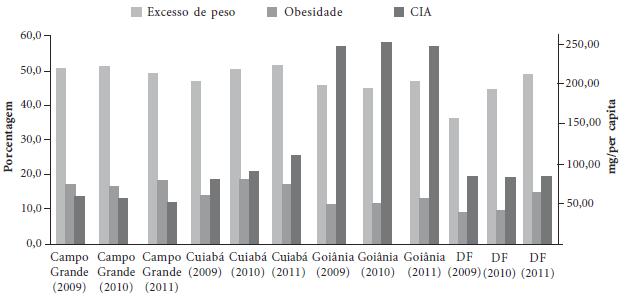The scope of this study is to analyze the determinants of the use of appetite suppressants (amfepramone, femproporex, mazindol and sibutramine) through the estimation of a dynamic panel dataset model for the Brazilian state capitals and the Federal District (DF) in the period from 2009 to 2011. The results show that consumption of appetite suppressants did not follow the geographic distribution of overweight and obese individuals across the capitals and DF. There is a recurrent consumption of appetite inhibitors, in which 79% of the current consumption of these drugs is explained by past consumption. Among the variables that explain the use of inhibitors, the percentage of obese adults, the percentage of adults who habitually consume fruit and vegetables, and the coverage rate of health plans stand out. The pharmaco-econometric analysis suggests that there are problems in the rational use of appetite suppressants in the Brazilian state capitals and the Federal District with respect to both the combined consumption of these drugs with other medicines - deemed illegal by the Federal Council of Medicine and ANVISA - and in the therapeutic prescription of these products.
Regression analysis; Appetite suppressants; Pharmaceutical economics; Obesity; Rational drug use



